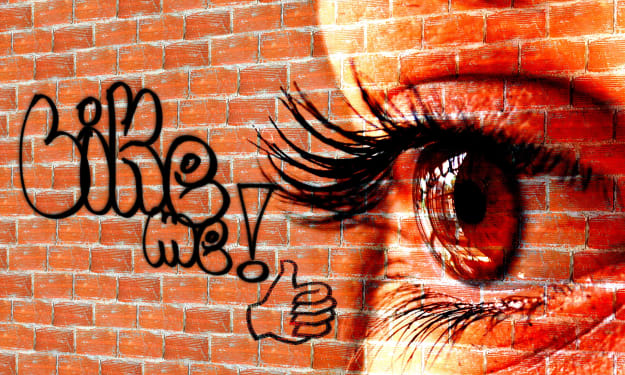
"Those who cannot remember the past are condemned to repeat it”
--George Santayana
Mistakes do not define a person, but how we respond to them does.
Being a Boomer and having lived through a lifetime of them, I understand the value of mistakes. They remind me every day that I did something. I took the risk and failed or succeeded in an honest attempt to get something done. I don’t regret my mistakes, only the time it took me to learn from them.
I am going to use the five questions put down by Paul Myers in a Medium article, because they provide a great platform to build on to understand what role leadership plays in our world today and more importantly how it will impact our future.
Do you know your followers?
If you’re not leading, then you are following or have somehow managed to move so far over to the side, that you are no longer in play. A neat trick, but difficult to maintain in this day and age.
Most people do not know their followers. Most people who assume the mantle of leadership do not feel the need to do so. They rely heavily on institutional hierarchies, so much so, that they assume those beneath them will simply obey. It’s been done this way in the military for millennia and has neatly transitioned into the business world. This is old school thinking that is tenaciously being held onto by those who admire the simplicity of it, but is nevertheless being dismantled by those demanding more accountability. Not a word favored by those currently in power, but one that is as important as the word leadership, itself. Without accountability; with an abiding sense that no one person has custody of all rights, then leadership is merely a bookmark for other more insidious words, like slavery and despotism.
How do you thrive in a crisis?
How did Churchill or Roosevelt thrive during World War Two? How did Abraham Lincoln operate through his doubts and moments of guilt during our Civil War?
By being certain of the validity and rightness in one’s position and acting in accordance with the needs and wellbeing of the people under their charge.
This is where knowing your followers is essential. Not everyone will agree with all of a leader’s decisions. Not everyone will see where that leader is going. This is not always possible or needed. If the followers have gained confidence in the leader’s ability to be right more often than wrong and to be compassionate more often than indifferent, then they will follow. Most people want to help; providing a means for them to do so is invaluable.
“A woman is like a tea bag; you never know how strong it is until it's in hot water.”
― Eleanor Roosevelt
How do you prioritize your emotional function?
There’s been a lot more discussion of late about Emotional IQ, and I for one am very thankful for that. IQ is simply raw power. It’s an 11,000 HP engine being strapped to a “skateboard” and traveling down a ¼ mile strip in 3 seconds.
The whole point is to get you from Here to There in under 4 seconds. You are not intended to see anything along the way, except the finish line. That is not how leadership works – not for any extended period of time. And not if you want an ever-growing number of people supporting who you are and what you are planning to do.
Emotional function is communication. It’s listening and discerning what’s truly important to those you are talking to. It’s using both to formulate plans and policies that further the needs and wellbeing of those under your charge. As an example: Their ability to be educated viably without a lifetime’s worth of debt. To pay them well enough for them to survive and prosper in a meaningful way. To provide healthcare broadly so that dreams are not merely a campaign slogan, but an actuality.
Are you equipped for defining moments in conflict?
Are the mechanics of conflict the same in kindergarten as they are in Congress? Can we learn from two, 5-year-olds talking it through to a hug? Absolutely.
A conflict is two opposing points of view in contention for the same space or the same mind – yours.
Communication and listening play a huge role in resolving conflicts. Along with the ability and stamina to stick it out until it is done. We’ve all seen this formula played out in life.
Disagreement + agrument = leaving the room
This is not what a leader does. Nor does she divert conversation to more suitable topics or offer arbitration before either party has had a chance to “talk it through.”
An argument is merely a loud conversation and contrary to certain beliefs, they are okay to have. In order to resolve conflict, a leader must be well versed in dealing with the weight and wavelength of anger, antagonism, guile and diplomacy. They are all mutually inclusive and can ultimately lead to victory without a shot being fired.
How about radical innovation?
Innovation is not always the next iPhone, tablet, e-car or dating app. Sometimes innovation is as mundane as showing up. Having the courage of one’s convictions. Holding a position in space and defending it soundly with reason and the proper use of nouns and verbs.
Innovation means, having the intellectual bandwidth available at any given moment in time to bring forth a solution from thin air or from the rubble of the last disaster.
Business holds sway in a lot of quarters, as does the military in regards to leadership. In both environments, leadership is essential to success. But in both circumstances, a leader learns from what works in these cultures and then evolves them into a more nuanced system, where interaction with and an understanding of what makes people tick and respond well is absolutely essential.
Giving orders to the citizenry works during wartimes and times of natural disasters, but ONLY, if those orders are rational and forward the goals of the group and bring about a cessation of the dangers inherent in that conflict. If it doesn’t, all bets are off.
“It is not fair to ask of others what you are not willing to do yourself.”
― Eleanor Roosevelt
Leadership is not merely the subject matter for a motivational seminar or TED Talk. It’s what makes or breaks the future of any group, company or country. Who becomes a leader is important to all of us but what’s even more important is that they are prepared for it and understand what it means to be one.
About the Creator
Joe Luca
Writing is meant to be shared, so if you have a moment come visit, open a page and begin. Let me know what you like, what makes you laugh, what made you cry - just a little. And when you're done, tell a friend. Thanks and have a great day.






Comments
There are no comments for this story
Be the first to respond and start the conversation.